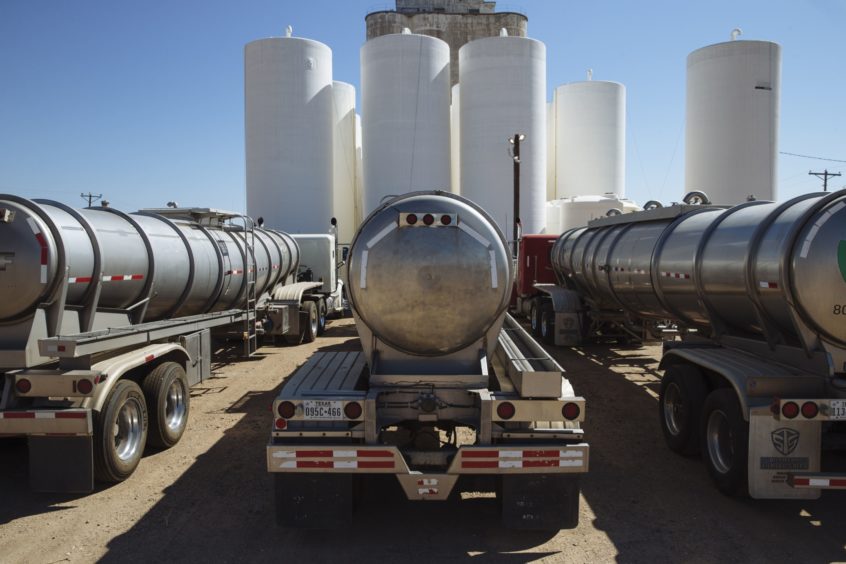
Brent oil resumed gains as the market assessed the fallout from the big freeze across Texas, with Goldman Sachs Group Inc. predicting prices will advance into the $70s in coming months.
Futures in London rose back near $64 a barrel on Monday after faltering at the end of last week as U.S. production slowly resumed following an easing of temperatures.
A robust recovery from the Covid-19 outbreak had pushed prices to the highest settlement in over a year on Wednesday and Goldman sees the rally accelerating as demand outpaces supply from OPEC+, shale and Iran.
Saudi Arabia and Russia, meanwhile, are heading toward an OPEC+ meeting next week with differing opinions about adding more supply to the market in April.
The kingdom wants to holds output steady, according to delegates, but Moscow is indicating that it still wants to proceed with an increase.
Crude has gained more than 20% this year after a pledge from Saudi Arabia last month to deepen production curbs turbo-charged a rally triggered by Covid-19 vaccine breakthroughs.
Brent’s prompt timespread has firmed in a bullish backwardation structure, signaling a tighter market and helping to unwind global stockpiles built up during the pandemic.
Oil prices are likely to see increased volatility over the next week as the market gets more clarity on how quickly U.S. refining capacity will return and as the OPEC+ gathering nears, said Warren Patterson, head of commodities strategy at ING Bank NV.
Prices
- Brent for April settlement climbed 1.6% to $63.92 on the ICE Futures Europe exchange at 2:16 p.m. Singapore time after dropping more than 2% over the previous two sessions.
- West Texas Intermediate for March delivery, which expires Monday, gained 1.5% to $60.12 a barrel on the New York Mercantile exchange after falling 2.1% on Friday.
- The more-active April contract rose 1.3% to $60.04.
Goldman raised its price estimates and is now predicting Brent will reach $70 a barrel in the second quarter and $75 in the following three months, $10 above its previous forecasts, according to a note.
Consumption will get back to pre-virus levels by late July, while output from major producers will remain “highly inelastic” to the rising prices, the bank said.
Iran and the U.S., meanwhile, sparred over how to revive a nuclear deal, reflecting the challenge ahead for the Biden administration even as nuclear inspectors persuaded Iran to temporarily allow some wider monitoring.
Tehran over the weekend renewed its demand that the new U.S. administration rejoin the accord and lift crippling Trump-era sanctions on the Iranian economy before talks can resume.
Other oil-market news:
- Iraq decided to halt its prepayment deal for oil with a Chinese company after prices rose, Iraq’s Oil Minister Ihsan Abdul Jabbar said in an interview with BBC Arabic.
- Presidential climate envoy John Kerry vowed on Friday that the U.S. would take aggressive steps to reduce its carbon emissions as the nation officially rejoins the Paris climate accord.